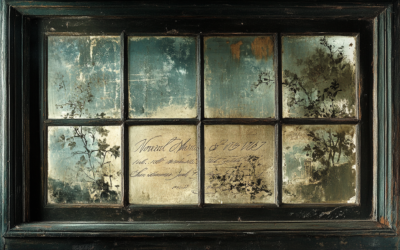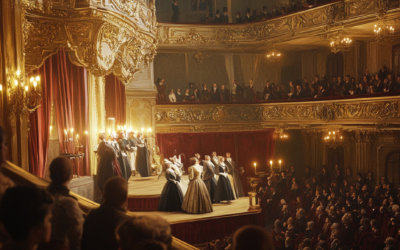Mozart Unveiled on Radio Vaticana:
A Landmark Broadcast
Experience the power of critical musicology as Luca Bianchini and Anna Trombetta present their groundbreaking insights on Mozart’s legacy on the prestigious Radio Vaticana.
Each episode unveils secrets and challenges the myths surrounding this celebrated composer.
Mozart: The Fall of the Gods
This book compiles the results of our studies on 18th-century music and Mozart, who has been revered for over two centuries as a deity. We dismantle the baseless cult of Mozart and strip away the clichés that falsely present him as a natural genius, revealing the contradictions in conventional biographies. In this work, divided into two parts, we identify and critically analyze several contradictory points in the vast Mozart bibliography. Each of the nearly 2,000 citations is meticulously sourced, allowing readers to verify the findings. This critical biography of Mozart emerges from these premises, addressing the numerous doubts raised by researchers.
"Mozart is not what history wants us to believe—sometimes, the truth is stranger than the myth."
Mozart: The Fall of the Gods
e esteemed musicologists Luca Bianchini and Anna Trombetta are bringing their provocative insights on Mozart to none other than Radio Vaticana, the Vatican’s highly revered station. Through a series of enlightening episodes of L’Arpeggio, Bianchini and Trombetta will delve into the myth surrounding Mozart, revealing intricate details from their groundbreaking book, Mozart: The Fall of the Gods. In a truly prestigious event, Radio Vaticana honors these scholars’ in-depth research and fearless questioning of Mozart’s legacy, underscoring the importance of evidence-based musicology in the modern world.
A Closer Look: The Episodes
First Episode
Introduction – The Birth of the Mozart Myth
Watch here: YouTube
Second Episode
The Quartets
Watch here: YouTube
Third Episode
The Duets and Quintets
Watch here: YouTube
Fourth Episode
Theater Director and The Marriage of Figaro
Watch here: YouTube
Fifth Episode
Divertimento K. 522
Watch here: YouTube
These first ten episodes explore key works of Mozart, presenting a rare, detailed critique that challenges the unexamined adulation Mozart often receives. From operas to quartets, this series promises to illuminate and unsettle long-held assumptions.
Special Feature: The Magic Flute
Explore more about Mozart’s most enigmatic work, The Magic Flute, through exclusive audio and video.
Follow this unparalleled broadcast to uncover a new perspective on Mozart, backed by historical scrutiny and the primary sources that few dare to reveal.
You May Also Like
Mozart’s Illusory Triumphs
The story of the young Mozart’s so-called triumphs at the courts of Europe is a tale riddled with embellishments, half-truths, and fabrications—many courtesy of Leopold Mozart himself and those who later sought to mythologize his son. One such example is the visit to Munich on 12 January 1762.
The Vienna Disaster
The failure of La Finta Semplice in Vienna was a turning point for the Mozart family, revealing the cracks in the facade of Wolfgang’s prodigious reputation and prompting a desperate escape to Italy in search of redemption.
From Innsbruck to Bolzano
From Innsbruck to Bolzano, the Mozart family’s journey was a blend of strategic networking and missed opportunities, revealing the challenges of securing fame in 18th-century Europe.
The Myth of Mozart’s Sight-Reading Genius
Mozart’s so-called sight-reading miracles were less about supernatural talent and more about clever improvisation, as two key 18th-century witnesses make clear.
The Hidden Legacy of Michael Haydn
Mozart’s Symphony No. 37, K.444, is more Haydn than Mozart. How did this happen? A story of deception and misattribution unfolds.
The Myth of Mozart’s Education
For centuries, Wolfgang Amadeus Mozart has been celebrated as a musical prodigy, effortlessly composing masterpieces from a young age. However, when we peel back the layers of myth surrounding his early education, a different picture emerges—one in which his father, Leopold Mozart, plays a far more controlling and influential role than is often acknowledged. This article explores the true nature of Mozart’s education, examining how much of his early works can be attributed to his own genius, and how much was the product of his father’s meticulous and often self-serving guidance. Was Wolfgang’s brilliance entirely his own, or was it a crafted image designed by Leopold?







